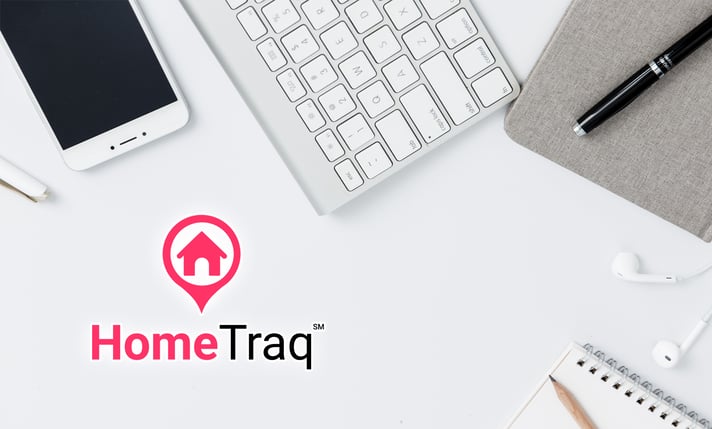Buying a home can be a high stress time and it feels even more stressful when you don’t understand the lingo being tossed around. From abbreviated words in listings to acronyms used by real estate agents and loan officers, sometimes it can feel like everyone is speaking a different language. Knowing these acronyms will keep you on the same page as everyone you are working with.

ARM- Adjustable Rate Mortgage
An ARM is a Mortgage option that’s interest rate changes after an initial period (typically five or seven years). After this fixed period of time, the rate will adjust periodically to reflect market conditions for the remaining term (typically ARM Mortgages have a 30-year term). Most ARMs have caps on how much the interest rate may increase. ARMS usually are a good option if you don’t plan on being in your home for more than five years.
APR- Annual Percentage Rate
An APR is the standardized method of calculating the cost of a mortgage, stated as a yearly rate which includes such items as interest, mortgage insurance, and certain points or credit costs. It is meant to help you compare different loan options. Comparing loans without the APR is like comparing apples to oranges. For example, a lower interest rate with high fees might not be as good of a deal as a slightly higher interest rate with lower fees. By incorporating these fees into a single rate you can easily compare loans with different fees, rates or different terms.
DTI -Debt-to-Income
The DTI ratio is the percentage of your income that goes toward paying monthly bills with your new mortgage payment. The lower your DTI is, the more likely you’ll be able to get the loan you are looking for. You will need a 43 percent DTI or below to get a Qualified Mortgage, which is a category of loans that are more stable.
FNMA/Fannie Mae
This is the nickname for Federal National Mortgage Association. It is a government-chartered non-bank financial services company and the nation’s largest source of financing for home mortgages. It was started to make sure mortgage money is available in all areas of the country. It is important to note that you cannot get a loan directly through Fannie Mae. You must work with a mortgage professional to obtain the loan.
FHA- Federal Housing Administration
The FHA agency of the U.S. Department of Housing and Urban Development insures that certain qualifying residential mortgage loans made by private lenders. The FHA sets standards for construction and underwriting but does not lend money.
FHLMC/Freddie Mac
FHLMC is the nickname for Federal Home Loan Mortgage Corp. A financial corporation chartered by the federal government to buy pools of mortgages from lenders and sell securities backed by these mortgages. Like Fannie Mae, Freddie Mac does not work directly work with consumers. You must work with a mortgage professional to obtain the loan.
HARP- The Home Affordability Refinance Program
The HARP program was created by the Federal Housing Finance Agency to provide refinancing options to borrowers with loan-to-value ratios too high for standard programs. This program is meant to help homeowners who owe more on their mortgage than their home is currently valued at.
HOA-Homeowners Association
This nonprofit association manages the common areas of a condominium or planned unit development. Unit owners pay an association fee to maintain areas owned jointly. These dues are not part of your mortgage payment but will be considered as part of your debt-to-income ratio. If you are buying a condo, your mortgage lender will require information from the association to determine the health of the association.
HOI-Homeowner’s Insurance
An insurance policy that combines personal liability insurance and hazard insurance coverage for a residence and its contents. You are usually required to have this coverage to close on your loan.
MLS- Multiple Listing Service
A service used by real estate brokers to distribute information on properties for sale to other brokers in the community. When you visit websites like Zillow or Redfin, the information you see is being pulled from the MLS.
PMI Private Mortgage Insurance
Insurance that protects mortgage lenders against default on loans by providing a way for mortgage companies to recoup the costs of foreclosure. PMI is usually required if your down payment is less than 20 percent of the sale price. You pay for the coverage in monthly installments.
TRID – TILA RESPA Integrated Disclosures (Know Before You Owe)
This is a new rule from the CFPB (Consumer Financial Protection Bureau) that amends components of the Truth in Lending Act (TILA) and the Real Estate Settlement Procedures Act (RESPA). The new rule replaces and integrates several disclosures into two separate and distinct disclosures known as the Loan Estimate and the Closing Disclosure. By law you must be provided with the Loan Estimate within three days of the initial application and Closing Disclosure at least three days in advance of closing, so that you are aware of the costs in advance of signing the paperwork and writing the check. The Closing Disclosure is a financial disclosure accounting for all funds changing hands at the closing. It is one of the most important documents you will get when you close on your home. Make sure you hold on to it because you will need it when you refinance, sell your home or try to get another mortgage.
FSBO- For Sale by Owner
A method of selling property without the use of an agent or broker.


